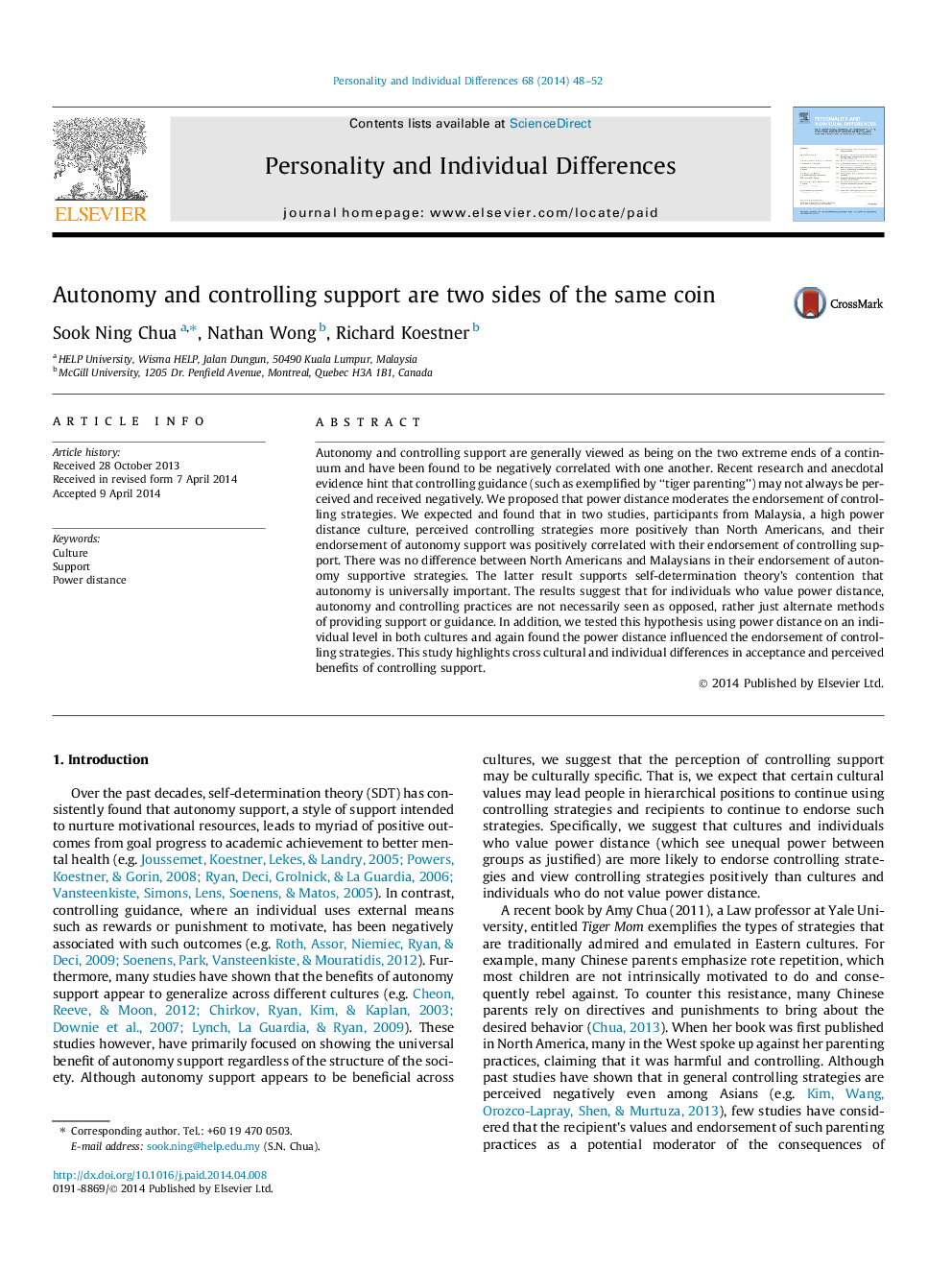| Article ID | Journal | Published Year | Pages | File Type |
|---|---|---|---|---|
| 7252211 | Personality and Individual Differences | 2014 | 5 Pages |
Abstract
Autonomy and controlling support are generally viewed as being on the two extreme ends of a continuum and have been found to be negatively correlated with one another. Recent research and anecdotal evidence hint that controlling guidance (such as exemplified by “tiger parenting”) may not always be perceived and received negatively. We proposed that power distance moderates the endorsement of controlling strategies. We expected and found that in two studies, participants from Malaysia, a high power distance culture, perceived controlling strategies more positively than North Americans, and their endorsement of autonomy support was positively correlated with their endorsement of controlling support. There was no difference between North Americans and Malaysians in their endorsement of autonomy supportive strategies. The latter result supports self-determination theory's contention that autonomy is universally important. The results suggest that for individuals who value power distance, autonomy and controlling practices are not necessarily seen as opposed, rather just alternate methods of providing support or guidance. In addition, we tested this hypothesis using power distance on an individual level in both cultures and again found the power distance influenced the endorsement of controlling strategies. This study highlights cross cultural and individual differences in acceptance and perceived benefits of controlling support.
Keywords
Related Topics
Life Sciences
Neuroscience
Behavioral Neuroscience
Authors
Sook Ning Chua, Nathan Wong, Richard Koestner,
